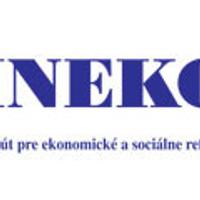intense/intensive
intense = strong, great, extreme, e.g. pleasure, desire, pain, heat, etc.
The head teacher is under intense pressure to resign.
intensive = involving a lot of activity done in a short time; concentrated, e.g. training, course, negotiations, etc.
My brother is doing an intensive English course.
concert/concerto
concert = a public performance of music
I'm going to a rock concert next Saturday.
concerto = a piece of music for one or more solo musical instruments playing with an orchestra
This record contains a concerto for clarinet and orchestra.
antique/ancient
antique = old and valuable, e.g. furniture, jewellery, books, etc.
My grandparents have some antique furniture.
ancient = thousands of years old, e.g. civilization, history, city, etc.
I listened to a lecture on ancient Greece today.
effective/efficient
effective = producing intended results
Penicillin is an effective medicine against the flu.
efficient = doing well without wasting time, money or energy
We use a fully efficient system for testing our students.
affect/effect
affect (verb) = to produce a change; to influence somebody/something
What you think about it won't affect my decision.
effect (noun) = a change caused by sth; a result
What you think about it won't have any effect on my decision.
continuous/continual
continuous = happening or existing without stopping, e.g. flow, line, speech, process
He's been doing continuous training for twenty years.
continual = repeated again and again, e.g. questions, problems, pain, fear
There are continual complaints about our son's behaviour.
The difference between these two adjectives is disappearing, and continual is sometimes used in the meaning of continuous.
shade/shadow
shade = an area out of the sunlight
Let's have a snack in the shade of that tree.
shadow = a dark shape made when a light shines on somebody/something
The candles threw flickering shadows against the wall.
tiring/tiresome
tiring = making you feel tired
I need to have a rest - it's been a long tiring walk.
tiresome = making you feel irritated
Shopping with my wife is a pretty tiresome business.
stationary/stationery
stationary (adjective) = not moving or changing; static
I collided with a stationary car.
stationery (noun) = things for writing and using in an office, such as paper, pens, etc.
I'm going to town to get some stationery - two exercise books and a box of coloured pencils.
adapt/adopt
adapt = to change something in order to make it suitable for a new use or situation; to modify
Our products can be adapted to suit individual customers.
adopt = to start to use a particular method; to officially accept a suggestion or policy
The new law will be formally adopted next month.
imminent/eminent
imminent = likely to happen soon
There's imminent danger of terrorist attack.
eminent = respected, excellent
Picasso was an eminent painter.
sensible/sensitive
Wheres sensible normally expresses a positive character trait, sensitive can carry both positive and negative meanings.
sensible = able to make good judgements based on reason and experience
Walking alone in the park at night is hardly sensible.
sensitive (1) = able to understand other people's feelings
His experiences have made him sensitive to other people's problems.
sensitive (2) = easily offended or upset
Teenage girls are very sensitive about their appearance.
lively/alive/live
lively = active and enthusiastic, full of energy
John is an easy-going and lively young man.
alive = not dead, living
All my grandparents are still alive.
live /laiv/ = not recorded, e.g. broadcast, performance, etc.
This nightclub offers live music at weekends.
discover/uncover
discover = to find something that you didn't expect to find
The police discovered some drugs while running a routine check on the car.
uncover = to discover something hidden or secret
After a thorough investigation, the detective has uncovered a plot to assassinate the president.
possibles/possibilities
possibles = people or things that are suitable for a particular purpose
Out of one hundred candidates, there are only ten possibles for the job.
possibilities = things you can do in a particular situation
There is a limited range of possibilities how to solve this problem.
ensure/insure/assure
ensure = to make sure that something happens
These pills should ensure you a good sleep.
insure (1) = to buy insurance so that you will receive money if you get ill or if your property gets damaged or stolen
Since I often go climbing, I have insured myself against injury.
insure (2) = ensure
Please insure that the computer is switched off when you leave.
assure = to tell somebody that something is definitely true
I assure you that your daughter is perfectly safe here.
That's it for now but I'll be here again, I can assure you.






